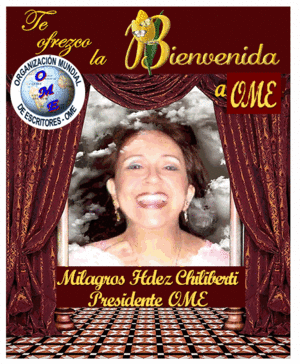- PORTADA
- PÁGINA PERSONAL
- MIEMBROS
- BLOGS
- FORO
- FOTOS
- VIDEOS
- GRUPOS
- LOSmásPOPULARES
- SONETOS
- JUEVES DE MUSA Y CANTO
- LITERATURA INFANTIL
- ERÓTICOS
- DUETOS Y MÁS
- CUMPLEAÑOS
- ARTES PLÁSTICAS
- ANTIPOEMAS
- CINE DE SIEMPRE
- POR LA PAZ
- ACRÓSTICOS Y CALIGRAMAS
- ANTOLOGÍA DE LA IMAGEN
- INTERCAMBIOS
- UNIVERSO HAIKU
- CARTAS DE AMOR
- FIESTA DEL AMOR
- LETRAS PARA MAMÁ
- LOS NIÑOS BENDITOS
- HOMENAJE AL POETA
- POESÍA A MADRE-TIERRA
- A LA MUJER
- POESÍA PARA TODOS
- TRADICIONES
- MITOS Y LEYENDAS
- CUENTOS NAVIDEÑOS
- CONCIENCIA SOCIAL
- TEATRO
- CIENCIA FICCIÓN
- EL PODER DE LA METÁFORA
- TANGOS Y MILONGAS
- MICROCUENTOS
- CHISTES Y CHIRIGOTAS
- ANTROPOLOGÍA-CIENCIA
- VENEZUELA
- EVENTOS
- BANCO DE IMÁGENES
- CHAT
- HAZ tu DONATIVO
Ethnocentrism pdf south africa
ETHNOCENTRISM PDF SOUTH AFRICA >> Read Online ETHNOCENTRISM PDF SOUTH AFRICA
the South African Schools Act 108 of 1996, the Language-in-Education Policy of 1997, and Ethnocentrism, with its roots in the Greek word for nation or people, is a sociological and psychological construct that influences the attitudes and beliefs of individuals about ethnicity affronted the sensibilities of African colleagues3. In South Africa. refe- rentes to culture and ethnicity allow liberal as well as Christian-natio- nalist Afrikaaners to emphasize difference without resorting to the bio- logistic and discredited concept of race (D~OW, 1987). 'Ethnicity' Ethnocentrism is often a judgment that we make based on our own culture, we tend to believe that what we practice in our own culture is right, as opposed to the practices of the other cultures, it is a kind of cultural relativism where we are comparing our own culture to the other while at the same time keeping the focus on our own culture. Ethnocentrism is therefore regarded as considering one's own culture as being superior to others and in turn judging other cultures in relation to your own standards. As stated before South Africa has a very diverse workforce. Muslim women observe HIJAB (covering the head and the body) because their Prophet has told them to do so. these views. In addition, the South African market for status goods is predominantly occupied by global rather than local brands (de Waal, 2008), yet little research has been published on South African consumers' attitudes towards consumer ethnocentrism, even though such research may uncover opportunities for developing and Apartheid in South Africa . Ethnocentrism •Judging another culture based off the values and beliefs of one's own culture. Often associated with extreme beliefs of racial/ethnic superiority. Ethnocentrism Explained . Examples of Ethnocentrism •Eugenics - Attempting to Irina, Marfushka, Larisa and Elmira—in Africa for their support of this research. Also, I would like to thank Professor Nifontov, Margarita and Cesarina who helped me to collect data for the pilot study of this project; Professor Alexei Matveev from the City University of New York in the USA for his advice and support; Professor South Africa is still in its infancy stage. Clearly, much more research is needed on the equivalence and bias of assessment tools used in South Africa before psychology as a profession can live up to the demands implied in the Equity Act. The next section describes a methodological framework for multicultural assessment. Abstract. The 21 st century can be marked by growing ethnocentrism. Ethnocentrism in education could have detrimental effects on classroom practices and learner performance. With a quantitative, institutional case study research design and positivist paradigm, this study used the Generalised Ethnocentrism survey to measure 1164 preservice teachers' ethnocentrism at a private higher education the Greek evil eye will be done to illustrate the problem of ethnocentrism. African and Greek cultures still hold on to their beliefs of witchcraft and the evil eye as, for example, South Africa. Rohrbaugh (2006:560) explains that, while there is a recognition of cultural differences in face-to-face encounters, Westerners seem to Ethnocentrism is the process of judging another culture exclusively from the perspective of one's own. Ethnocentric people compare their culture to others on such elements as religion, behavior, language, customs, and norms. The term is frequently heard in situati
Contenido principal
Grupos
Videos
-
22 de mayo de 2024
Agregado por Nilo 0 Comentarios 1 Me gusta
-
24 de mayo de 2024
Agregado por Nilo 0 Comentarios 1 Me gusta
© 2025 Creada por Aimee Granado Oreña-Creadora.
Con tecnología de
![]()
Insignias | Informar un problema | Política de privacidad | Términos de servicio

¡Tienes que ser miembro de ORGANIZACION MUNDIAL DE ESCRITORES. OME para agregar comentarios!
Únete a ORGANIZACION MUNDIAL DE ESCRITORES. OME